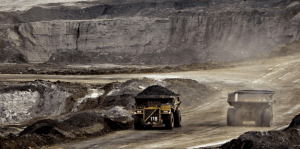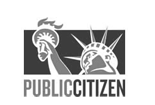Recently, the U.S. Chamber announced that it was in favor of speeding up the permitting process for the Keystone XL pipeline, which would carry an especially dirty form of crude oil from the tar sands in Alberta, Canada to Texas and the Gulf of Mexico.
It still isn’t entirely clear who stands to gain from this project if it gets approved by the State Department, but reports are starting to surface that hint to the true beneficiaries. According to this recent article in the NationalJournal, “Shell, Valero, and ConocoPhillips are expected to ship oil via the Keystone XL pipeline if it’s approved, according to the companies and TransCanada, the Canadian company seeking to build the pipeline. Two Canadian companies, Canadian Natural Resources Limited and Cenovus Energy, also have signaled interest in using the pipeline.”
Although the Chamber has fought tooth-and-nail to keep corporate disclosure laws at bay (effectively keeping it’s biggest corporate donors a secret), it’s well known the national organization has close ties to the oil industry (ExxonMobil is one of it’s members, and Shell President Marvin Odum recently spoke at a U.S. Chamber event about the Keystone XL). And as the country’s major oil companies get in line to rake in major profits from the Keystone XL pipeline, the U.S. Chamber lurks nearby, flexing it’s muscles in Washington DC and eagerly awaiting it’s share of the dirty money.
On the surface, the U.S. Chamber is talking about the Keystone XL pipeline as something that will keep America safe, secure and prosperous—as if this project were being pushed forward for the benefit of the American people and it’s small business owners. This line is easy on the ears, but simply put, it isn’t true. The Chamber wants the approval of this project because it means a major spike in profits for it’s members and, therefore, for the Chamber itself. Here’s what the Chamber isn’t telling the business community about the Keystone XL:
- The new pipeline would run through six Midwestern states and across the pristine Ogallala Aquifer, which provides fresh drinking water to 2 million Americans in eight states and supports significant fractions of the nation’s economy through irrigation for livestock, food and fiber crops. If the pipeline were to leak, the consequences would be disastrous for the Midwest and the entire country writ large.
- There is a marked lack of independent, peer-reviewed scientific research demonstrating that transporting the tar sands crude oil using conventional oil pipeline technology is actually safe. The “DilBit” crude oil is more corrosive than regular oil, and it would be thinned with other petroleum condensates and then pumped at high pressure and at a temperature of more than 150 degrees through the pipeline. “A new TransCanada pipeline that began carrying diluted bitumen last year has already had nine spills.” -NY Times Editorial
- Even if the Keystone XL pipeline never ruptured (an unlikely scenario), the completion of this project will have a devastating and economically disastrous impact on the climate. Dr. James Hansen, director of NASA’s Goddard Institute for Space Studies, is vehemently opposed to the Keystone XL pipeline, stating that “exploitation of tar sands would make it implausible to stabilize climate and avoid disastrous global climate impacts.“ Additionally, twenty of the nations leading scientists have just released a letter to Obama asking him not authorize the permit for the Keystone XL.
- The Energy Department says the pipeline would have a minimal effect on national gas prices, and may even lead to an increase in oil and gas prices in the Midwest.
- There is already sufficient pipeline capacity to double United States imports from Canada, without building the Keystone XL.
- The energy security and economic growth that we’re in need of can already be found in clean, renewable energy development—green jobs already employ more people in America than oil or gas jobs combined, and that gap is only going to widen with time.
For all of these reasons and more, an unprecedented coalition of organizations and individuals are coming together to fight the Keystone XL pipeline. The U.S. Chamber is only one of the monolith, profit-mongering institutions that we’re up against, but it plays a major role in the public debate over this project. For that reason, we are asking local chambers and small businesses across the country to publicly oppose the Keystone XL pipeline—our elected leaders need to hear from America’s real business community, not just it’s biggest corporate lobby. If you own a small business or know someone at a local chamber of commerce, e-mail us at chamber@350.org so that we can collect your comments. Otherwise, stay tuned and we’ll continue to send important updates on this fight to protect America’s economy and the environmental systems that sustain it.










